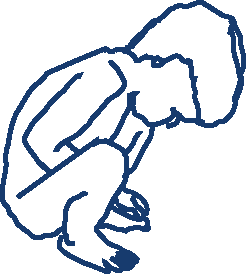| |
| |
|
|
| |
Why are so many people rude on the Internet?
|
|
| |
|
|
| |
|
People are rude on the Internet because human beings are
predators, like lions and tigers. Animals are more honest;
they simply bite each other, either in play, or for keeps.
People are trickier; they frequently mask or hide their natural
aggression in wordplay or irrational speech, in the form of
linguistic puzzles. All you have to do is solve all the puzzles!
|
| |
|
This is exactly what I've been working on over at taxi1010.com,
which includes linguistic puzzles (which before they're solved,
or fully understood, evoke hurt feelings, bewilderment, frustration,
almost imperceptible fear, cover-up of impulses to kill (by
being good!), anger, real fear, open hostility, physical
violence, and war), along with research in how to respond
in mutually face-saving ways, that are neither namby-pamby
nor critical, and which get updated every day, in the Daily
Splash!
|
| |
|
The preverbal parts of a person can be contacted and nourished.
On an individual level, whether someone was sexually, emotionally,
or physically abused as a child or not, words replace vague
unspoken fears; on a more powerful, though no less specific
level, whether in the ritualized aggression of law, in the
amused du mot jouer of rich people, or in the parleys
of international diplomacy, words replace violence.
|
| |
|
The way out is through understanding, in one stealthy way
or another, so you can get below linguistic cloaks and really
listen to people. It helps to have a sense of humor and to
realize, people need to express themselves honestly (except
at their place of work!) so they can grow through things.
|
| |
|
Richard
Ames Hart, October 18, 2007
|
| |
| |
|
External Links
|
|
| |
|
• Non-escalating
Verbal Self-Defense
|
|
• Verbal
Abuse :: unabridged
|
|
|
| |
|
|
|
|
